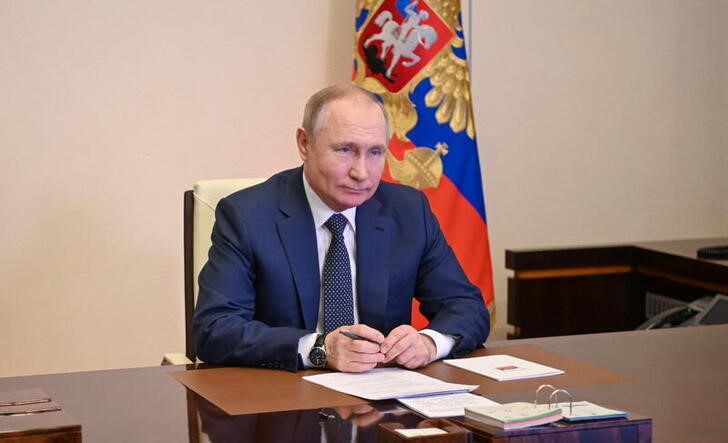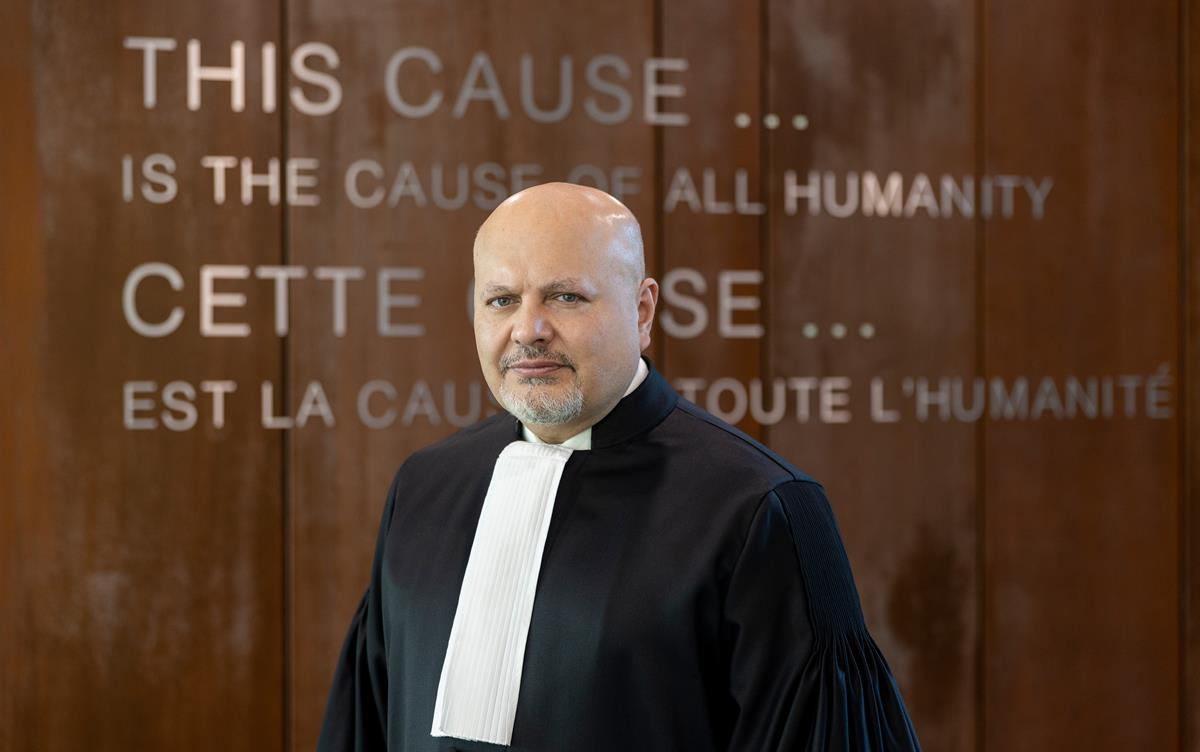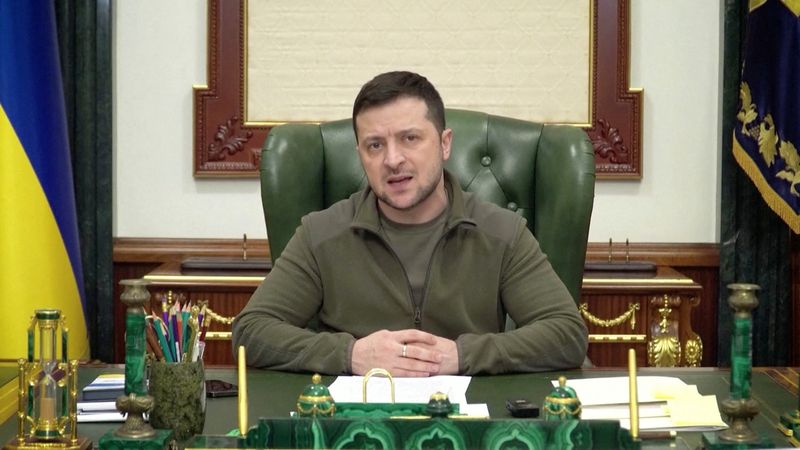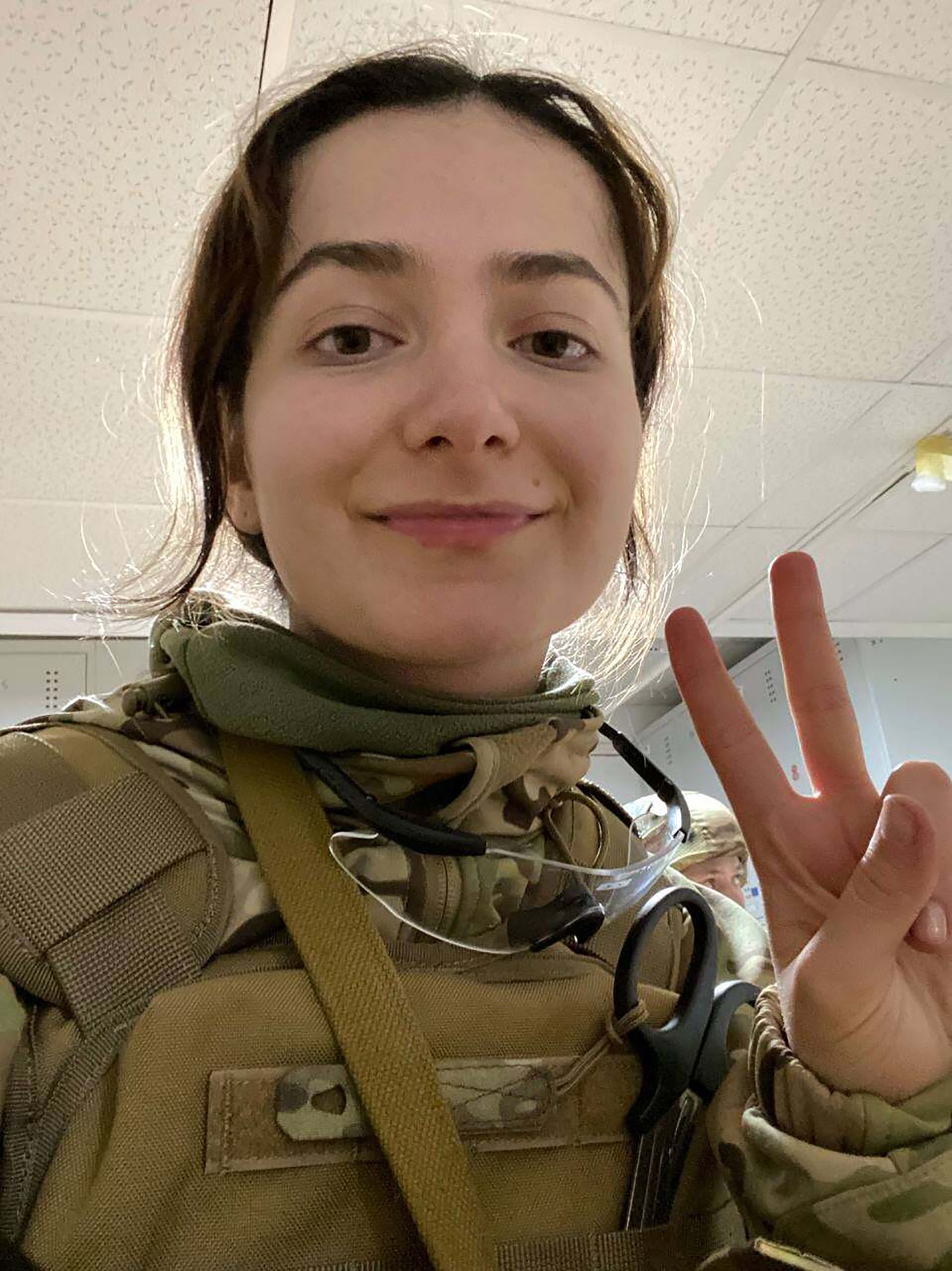
In The Hague, it will be four o'clock in the afternoon - in Buenos Aires, noon - when the International Court of Justice (ICJ) announces its decision on Ukraine's request for precautionary measures in its lawsuit against Russia over the invasion that began on February 24.
Infobae exclusively interviewed the lawyer who leads the strategy against Putin's regime: Harold Koh, one of America's leading experts on international law and human rights. Koh has been a professor at Yale Law School since 1985 (of which he was Dean from 2004 to 2009). From 2009 to 2013 he was Hillary Clinton's chief legal adviser at the State Department. He was also Assistant Secretary of State for Democracy, Human Rights and Labor for the Bill Clinton administration from 1998 to 2001. He has 17 honorary titles and more than 30 awards for his career in the defense of human rights.
— In his presentation to the Court, he spoke of the failure of the world to stop Russia in the past, for example, in Crimea. What could have been done?
— The response in 2014 could have been similar to what we are seeing now: coordinated international action, with sanctions and so on. But in 2014 Putin argued that Ukraine was doing something wrong and that it had to be stopped. He never acknowledged that he was invading another country. He did all this to create the impression that he was not violating international law. That was his game plan, his script. And what happens now is that he tried to do it again, but this time he can't fool us.

— Speaking to the Court he said that this is a unique case, so far imagined only as a hypothesis: a case in which a permanent member of the UN Security Council openly invades an innocent country. Is it really unique? Can we not think that the United States did just that, for example, in the Iraq War that you yourself condemned as a violation of international law?
— Well, I think that's the nature of the problem we're facing. The United States had tremendous support in doing so. The Russians are acting alone, except for Belarus. But I think that's the question: do we have two different rules of international law (one for strong countries and one for weak ones)? What I tried to argue before the Court is that everything Ukraine asks about Russia being ordered to limit the movement of troops and such measures are issues that the court has already ordered in the past in respect of small countries (although it also did against the United States in the case of Nicaragua). So why should they be able to order it for some countries and not for Russia when their violations are so evident?
— But even if the Court today resolves the request for precautionary measures in favor of Ukraine, what will happen? Is Russia going to comply? And if it does not comply, what can be done if it has veto power in the Security Council?
— Their game is strength; ours is right. That's why I cited the Marbury v. Madison case [note: it refers to the 1803 ruling in which the U.S. Supreme Court created judicial control of constitutionality in a very creative way, avoiding giving an order that the court would not be able to enforce] many people told me “the ICJ has no power to enforce its decisions.” But the truth is that no court in the world has that power by itself. Every court needs a third party to enforce its rulings.
The critical point here is to leave Putin as an isolated bandit in an interdependent world. If we manage to establish that he lies about facts and that he lies about law, this achieves three objectives.
First, it leaves it isolated, weakens its bargaining power and making it less likely to win allies. I think, in particular, of China, that it intends to operate in the world of law, so if Putin is labeled as a bandit, someone who operates outside the law, it is much more difficult for him to support him. And if China does not support it, this will eventually lead Putin to sit down and negotiate.
Second, the ICJ order can go to the UN General Assembly (which is in fact already acting) within the framework of the “Uniting for Peace” resolution of 1950 [note: this is resolution No. 377, created to avoid Russia's continued vetoes in relation to the Korean War, which allows when the Security Council does not act to preserving international peace and security for lack of agreement among its members, the General Assembly itself should recommend collective measures, including the use of force]. And we must also see what strategy would be adopted in the Security Council.
Thirdly, if the Court decides to request precautionary measures in favor of Ukraine, this lays the foundation for sanctions and individual responsibility. If the ICJ clearly states that Russia is acting illegally, it strengthens the possibility of prosecuting Putin for the crime of aggression or war crimes.
Putin is caught in a web of lies, but also in the web of law. We're trying to connect these two things. Let's imagine what happens when someone becomes a bandit, an outlaw outlaw. Their ambulatory freedom and their ability to travel is limited, their family is also complicated, they cannot move their money, etc. They begin to become prisoners because everything they do is illegal. That is what was done with Milosevic, with Karadzic, with Pinochet, and that is what we should do with Putin.
— This is related to what you said to the Court: that your decision will be “the essential spark that inspires other agencies and agencies with international competence to take other measures necessary to protect peace, security and human rights in this crisis”. Do you think that a clear ICJ order in favor of Ukraine can inspire the International Criminal Court, whose prosecutor is already acting, to pursue real sanctions against Putin and his collaborators?
— Well, these courts are in one town [The Hague] and it's a town the size of New Haven, Connecticut [note: where Yale University is located]. If a Court says that what Russia is doing is in principle illegal, this increases the chances that it will be something for which individual responsibility can be assigned. The Criminal Court has already received the complaint from 39 countries, Ukraine consented to an investigation and prosecutor Karim Khan is ready to move forward. In addition, the investigation includes everything that has happened since 2014. This opens up the possibility of evaluating a long historical period to find Putin responsible and guilty.

What I wanted to say to the ICJ is that law needs a hook, someone who moves first. If the main judicial body of the UN says “lies about facts and lies about law”, it becomes easier for other international tribunals to move forward. This is what we often have to tell the courts: you can't do nothing, but we don't ask you to do everything either. We must give them enough courage to act, but not make them believe that acting is going to be an impossible task.
— When we talk about individual responsibility, what happens to the crime of aggression? Looking at the current crisis, do you not regret the US position in the discussions to reform the Rome Statute in 2010, which resulted in a considerable limitation to the jurisdiction of the Criminal Court for that crime that would be easier to prove to Putin today than war crimes?
- No, not at all. The main obstacle is that Russia does not accept the jurisdiction of the Court over the crime of aggression. In fact, this is what Prosecutor Khan said.
- Exactly.
— What was done in the 2010 reform was to set the standard for the crime of aggression very high. But this case reaches the standard: planning, preparation, initiation or execution; effective control of military action. All this is fulfilled. Character, severity and scale of aggression. Manifest violation of the Charter of the United Nations. It is against the sovereignty, territorial integrity or political independence of another State. There is invasion, bombardment, blockade, attack, dispatch of armed forces and the use of irregular armed groups under their control.
— I totally agree, but again: there is no jurisdiction.
— Jurisdiction has to be accepted. It is a consensual process and Russia did not accept it. In Nuremberg they defeated them. Here they are on the battlefield and we don't know what will happen. If you don't have them detained because you've beaten them, you have to get them to consent to jurisdiction.
— Well, in the case of war crimes and crimes against humanity, that consent of the two countries is not needed. It is enough with the consent of Ukraine. And this standard was driven by the United States. You really don't think it was a mistake?
- That's not what we did. I was there. What we did was set an extremely high standard. In my opinion, there are situations where there are legitimate humanitarian reasons for an intervention. The point is that what Russia claims is false. But it is possible for women lawyers to distinguish between interventions made to prevent invented genocides from those made to prevent real genocides, as in Libya. So I don't regret anything.
- I don't mean you in particular. I just wonder if it's not a shame to have set such a significant limit on jurisdiction that it now prevents the application of a crime (that of aggression) that, as you said, would be so easy to prove.
— Let us consider this other point: the most important thing at the moment is not to criminally prosecute Putin, but to bring him to a negotiation where there is a ceasefire and in which he stops killing civilians. Do you agree?
— Yes.
“Well, if you think the first step is to prosecute him criminally, he won't go. That is why this is based on what happened in Dayton [note: it refers to the peace treaty signed in 1995 between Serbia, Croatia and Bosnia and Herzegovina]. War criminals Milosevic and Karadzic participated, made a ceasefire agreement that resulted in Dayton, left and then both were pursued in The Hague. Milosevic died and Karadzic is in jail. This is what should happen to Putin. You're not going to prosecute a guy you didn't catch for the crime of assault. The Nazis had been defeated. Putin has 200,000 troops and tanks. The idea that the first thing lawyers are going to do is to prosecute you criminally doesn't make sense. What you want is for me to stop killing boys and girls.
We have to be pragmatic. It is necessary to weaken its position, isolate it, force it to negotiate, accept a ceasefire, the entry of UN forces, prevent its troops from committing war crimes and reaching a political solution acceptable to Zelenski, leaving open the possibility of judging individual responsibilities later.

— The ICJ moved pretty fast. Do you think this anticipates a favorable decision today for Ukraine?
- It moved very fast, in just 9 days. I don't even place bets on football matches, but it would be strange for them to move so fast to say we don't have jurisdiction. When I spoke before the Court, I looked them in the eye and I think that the majority will decide in favor of a strong order in favor of Ukraine. Decisions on precautionary measures usually take between 6 and 8 weeks. In this case it will be 9 days. This says a lot. I think they want to influence this. Otherwise, they would take more time. Obviously, there are judges who want to limit their impact on the situation, but they could not block the decision so quickly. So... we'll see.
— Are the reasons that make this a unique case for you enough to start thinking about a reform of the Security Council? After 76 years, can it still be expected to maintain international peace and security when the countries with veto power are just the ones that put international peace and security at risk? I am referring not only to Russia, but also to the United States.
- Yes, of course. Kofi Annan already recognized this in his millennium report. It's an absurd situation. For example, France and the United Kingdom have veto power, while India, Brazil, even some continents have no representation. The problem is that structural reform is very difficult and, moreover, it will always be subject to the veto. But yes, this is not the system we need for the 21st century. And I tell you something else, which is revealing to me. Suppose a permanent member commits genocide, but against his own people. Can other countries legitimately intervene to prevent it or does the veto block them? Although we are not in that scenario today, it is a real problem.
From the time I was a student until 1986-1987, everything revolved around how to avoid Russia's veto in the framework of the cold war. And then, from 1987 to 2011 that was no longer a problem because Russia no longer vetoed so much. In this second stage, many young scholars of international law were absolute defenders of the Security Council because they believed that Russia would cooperate. And here we are, again thinking about how to get around Russia's veto. So, for me, this is a return to the place where I started my career. Being an older adult sometimes has its advantages.
— And what about the US veto? From the perspective of a small peripheral country like Argentina, we are all the time subjected to crazy decisions by each other that jeopardize international peace and security, but on which we have no say or vote.
— I don't think of Argentina as a small, marginal country. I think he's a leader in Latin America. In situations where the Latin American bloc is united to protect democracy and human rights, Argentina is a very powerful voice. Like Chile and Uruguay, they have a huge role to play right now, as we deal with Bolsonaro or Venezuela, negative forces on the continent. It is essential that Latin America continue to bet on democracy and the rule of law.
As for the US veto, if the country has a decent foreign policy, as I think it does now with Biden and that it didn't have with Trump, it shouldn't have to use that power.
“Well, but then it is as contingent as its history with Russia's vetoes. Whether the veto is good or bad cannot depend on whether Biden or Trump rules. The question is what to do from a structural point of view.
— Yes, as I said: I am in favour of a reform of the Security Council, but it is difficult to achieve. The question is how we work with the rules we have. If Russia exercises its veto power, can we do something about it?
International law is like cancer medicine: if the person can endure, it will take effect. If Ukrainians survive, the international system will be able to protect them. That is what we expect and that is why we are taking the case to the ICJ.
This is going to be Putin's Vietnam. I think he made a tragic miscalculation and with that he signed his own exit ticket.
-----------

Before saying goodbye, Harold Koh tells me that when he argued on behalf of Ukraine before the ICJ in 2020, a week before the pandemic broke out, he was invited to an international law conference where he met a student who showed him around the city of Kiev. Tata Marharian, an idealist of international law. A few days ago he saw her again. This time it was on CNN. Tata is dressed as a military man and works as a volunteer in a war hospital. He looks at the camera and tells that he sees bombings, bodies of boys and girls. “I studied international humanitarian law, he says, I never thought I would see this with my own eyes.”
International humanitarian law is still here, Koh thinks, in this case, of this decision that we expect so much from the International Court of Justice.
KEEP READING:
Últimas Noticias
Debanhi Escobar: they secured the motel where she was found lifeless in a cistern

The oldest person in the world died at the age of 119

Macabre find in CDMX: they left a body bagged and tied in a taxi
The eagles of America will face Manchester City in a duel of legends. Here are the details

Why is it good to bring dogs out to know the world when they are puppies




